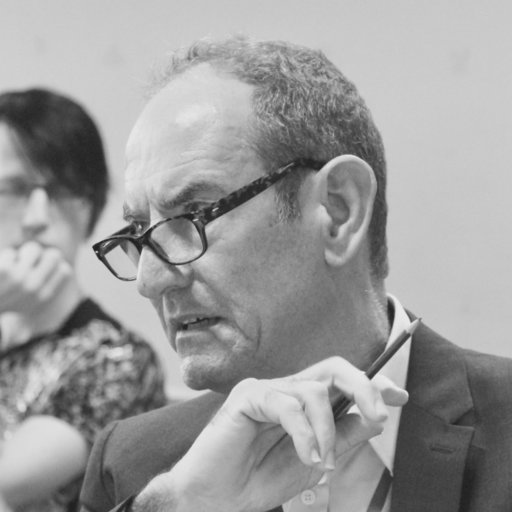Philip Stratton-Lake (1959-2022)
Philip Stratton-Lake, professor of philosophy at the University of Reading, died last month following a period of serious illness.

David Oderberg, Head of the Department of Philosophy at Reading, shared the following brief memorial notice:
Philip was a much loved and respected colleague in the Department since he joined in 1998. He was an internationally reputed moral philosopher with expertise in a wide range of areas including meta-ethics, moral epistemology, Kantian ethics, contractualism, intuitionism, and Ross-style pluralism.
He was one of the world’s leading figures in the revival and defence of ethical intuitionism, writing the article on the topic for the Stanford Encyclopedia and editing a seminal volume (Ethical Intuitionism: Re-evaluations). He also edited the now standard edition of W.D. Ross’ The Right and the Good. Other work includes an important monograph on Kant (Kant, Duty and Moral Worth) along with many articles and chapters in collections.
The Department will miss Philip in so many ways: his jovial personality; his support for colleagues and students; the many teaching and managerial roles he took on with such success over the years; his fearsome philosophical skills, always tempered with fairness and open-mindedness; and his all-round collegiality, good sense, and down-to-earth nature.
Prior to joining Reading, Professor Stratton-Lake was a lecturer at Keele University. He earned his BA and his PhD from the University of Essex.
You can learn more about Professor Stratton-Lake’s work here and here.
UPDATE: The Department of Philosophy at Reading has posted a memorial notice here.


This is such a loss. I didn’t know him, but greatly admired his work, especially on Kant’s ethics. Best wishes to his family and colleagues.
This is terrible news. I first met him as an exchange student at Reading in 2002. His exemplary lectures (on David Ross) opened up an entirely new world for me. I owe to a conversation with Philip the basic idea behind my PhD thesis and behind large part of my work since. His work was always inspiring and unrivaled for clarity. He was a great mentor to me and many of us who learned how to do philosophy at Reading.
A wonderful philosopher. And one of the kindest, sweetest people you could hope to meet. Philip will be hugely missed. RIP.
A terrible loss to his loved ones, to Reading, and to the profession.
Philip was one of my doctoral supervisors at Reading from 2006-09. In supervisions, in graduate seminars and talks, and informally, he taught me so much about how to do philosophy. He would disagree in a robust but constructive and friendly way. He would take time to pore over the details and, to my considerable amazement as a first-year PhD student, he would concede objections and difficulties in his own view, along with suggestions, in a way completely devoid of ego. The work he did rehabilitating Ross’s deontic pluralism is also testament to this quality of his.
One thing worth highlighting is the amount of service work (‘admin’ in UK parlance) that he did. As Professor Oderberg’s memorial notice highlights, Philip did incredible quantities of such work, multiple careers’ worth, and had sage advice to give about it. In hindsight, I now realise just how astonishing it is that he did it all without ever seeming begrudging about it.
Philip was inspiring in just being *such* a friendly, funny, and warm person alongside being such a rigorous philosopher. He was a model of how to be a well-rounded person, a model supervisor, and a first-rate philosopher.
Such terrible news. Philip was so excellent as a mentor, colleague, and friend. He was one of the most down to earth philosophers I’ve met, and this, amongst other virtues, made it an enormous pleasure to spend time with him, and also made him an excellent philosophical interlocutor, always willing to ask the simplest but most important questions, and to see through the details to the real core of every issue. He will be missed, and I’m terribly sorry that I didn’t see him more in recent years.
I was extremely privileged to have studied under Philip Stratton-Lake as an undergraduate at Keele. He was my tutor for many Philosophy modules and I am deeply indebted to him intellectually for his profound knowledge and astute guidance.
A particular memory that will always stay with me occurred whilst we were studying his special subject on Ethical Intuitionism in 1998. We were in our usual room at Keele Hall (KH88). The class had barely started when he halted proceedings following a prolonged gaze out of the window . Under his insightful direction, we were told to pack up our books. After all, why shouldn’t we all be sat outside on the grass in the glorious sunshine? In those beautiful gardens and surrounds he continued to teach us about Intuitionism. In a setting befitting of the Bloomsbury set we were encouraged to discuss our thoughts and ideas. Life at its finest. These moments, among many, were gifts to be treasured by all of us lucky enough to have been taught by him and to have known him.